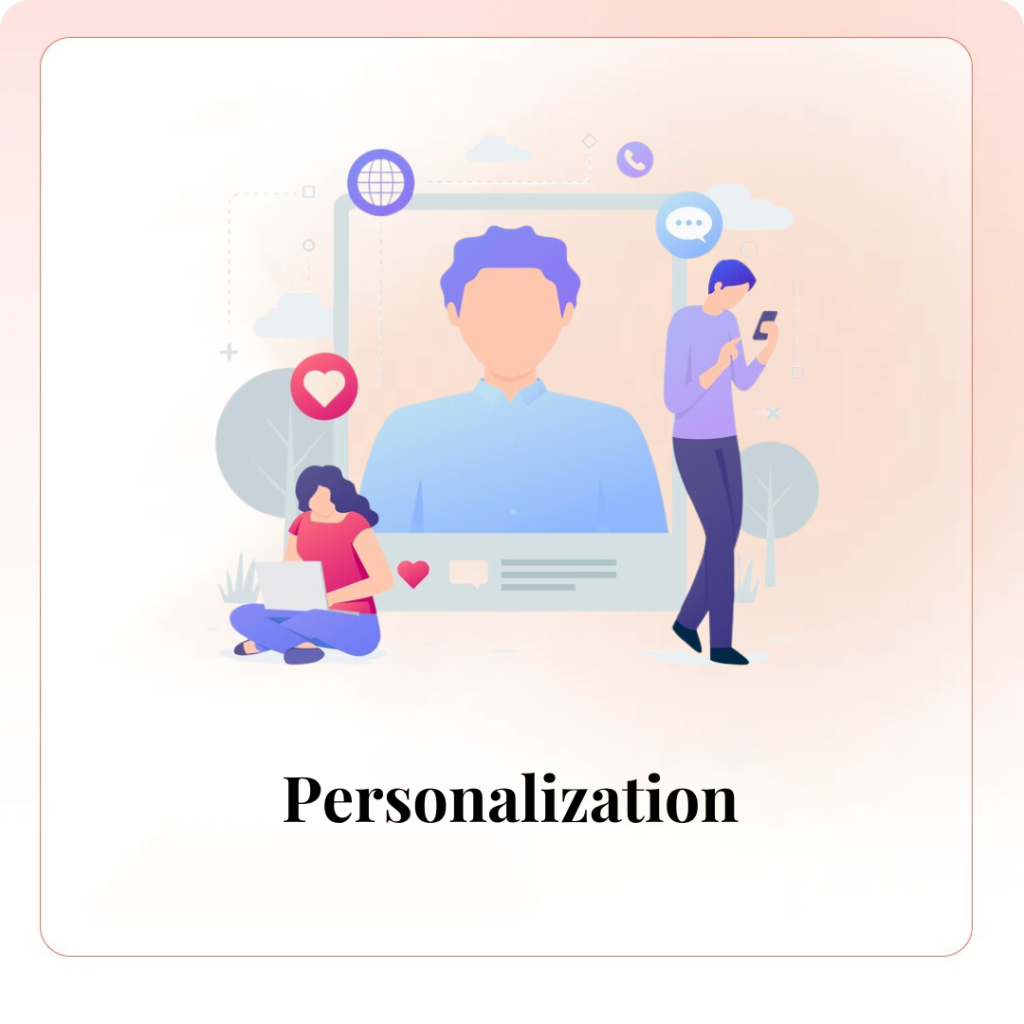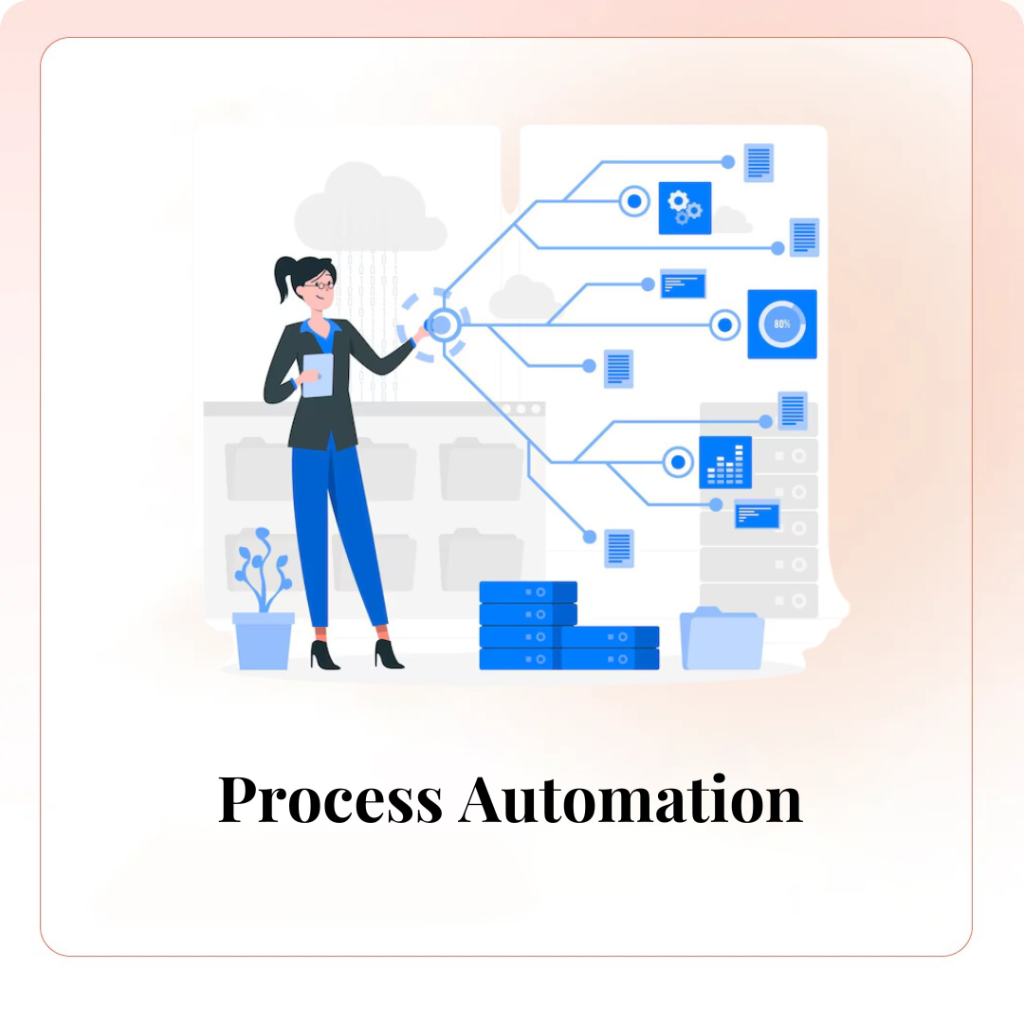Businesses are always looking for methods to improve client interactions, speed up response times, and increase efficiency in today’s digital-first environment. Using chatbots for customer service is one of the best ways to accomplish these objectives. Artificial intelligence (AI) and machine learning (ML)-powered chatbots offer users immediate, automated support, increasing customer service’s speed, effectiveness, and affordability.
By automating commonly asked inquiries, resolving common issues, and assisting users with various procedures, chatbots simplify customer interactions. They are now a crucial tool for companies trying to improve the customer service experience, whether they are used on social media, mobile apps, or websites.
Types of Chatbots
1. Rule-Based Chatbots (Scripted Chatbots)
Rule-based chatbots use decision trees and prewritten scripts to function. They deliver responses based on particular keywords and trigger phrases and adhere to a methodical approach. These chatbots are perfect for simple, repetitive activities because they are preprogrammed with a set of responses.
These chatbots are frequently used in customer service to schedule appointments, track orders, respond to frequently asked questions, and perform simple troubleshooting. Within their predetermined parameters, they operate effectively, but they have trouble answering complex or unstructured questions from clients that are outside of their programming.
2. AI-Powered Chatbots (Conversational Chatbots)
AI-powered chatbots comprehend and react to customer inquiries in a more organic and human-like way by utilizing machine learning (ML), natural language processing (NLP), and artificial intelligence (AI). They can learn from past conversations, identify intent, and respond with contextually appropriate information, unlike rule-based chatbots that just use prewritten scripts.
These chatbots provide a more engaging experience and are capable of managing intricate client inquiries, product suggestions, and tailored exchanges. As they examine user data, hone their answers, and increase accuracy, they get smarter over time. The IT, finance, healthcare, and e-commerce industries all make extensive use of AI-powered chatbots to offer smooth, automated client service.
Chatbots for Customer Support
Chatbots have revolutionized customer service operations by providing instant, accurate, and scalable assistance to users. Businesses integrate chatbots into their support systems to enhance user experience, resolve queries faster, and reduce dependency on human agents.
These virtual assistants assist in:
✔ Answering Frequently Asked Questions (FAQs) – Chatbots handle common queries about pricing, services, delivery status, and policies without human intervention.
✔ Order Tracking and Status Updates – Customers can inquire about their order status, expected delivery date, and return policies through chatbot assistance.
✔ Product Recommendations – Chatbots use customer data and purchase history to provide tailored product suggestions, improving engagement and sales.
✔ Technical Support and Troubleshooting – AI chatbots help customers troubleshoot basic software, hardware, and connectivity issues by offering step-by-step guidance.
✔ Booking Appointments and Scheduling – Many industries, including healthcare, hospitality, and retail, use chatbots to manage appointment scheduling, reducing administrative workload.
✔ Seamless Escalation to Human Agents – When a chatbot cannot handle a request, it efficiently transfers the conversation to a human agent, ensuring smooth customer service.
Chatbots act as the first line of support, handling large volumes of inquiries while improving efficiency, consistency, and customer satisfaction.
The Benefits of Using Chatbots for Customer Support
1. Enhanced Customer Experience
The capacity of chatbots to enhance the client experience by providing prompt, effective, and amiable assistance is one of its greatest benefits. Chatbots interact with users instantly and offer pertinent answers, in contrast to traditional customer support techniques that need lengthy wait times.
They assist companies in keeping lines of communication consistent, guaranteeing that each client gets timely and accurate information. Furthermore, brand-specific tone and style can be programmed into chatbots to enhance engagement and correspond with a company’s values.

2. Personalization

AI-powered chatbots customize responses based on user information, preferences, and browsing history. They can boost client engagement, offer targeted help, and customize recommendations by examining previous interactions.
By helping clients feel appreciated and understood, personalization improves the user experience. An entertainment platform chatbot can recommend shows based on viewing history, or an e-commerce chatbot can offer things based on past purchases.
3. 24/7 Customer Support
Chatbots, in contrast to human agents, offer round-the-clock, year-round assistance without regard to time limits. This is especially advantageous for multinational companies that cater to clients in several time zones.
Availability around-the-clock guarantees that clients get assistance when they require it, boosting client pleasure and lowering annoyance. Chatbots continue to function, guaranteeing continuous service even on holidays, during peak hours, and during off-business hours.

4. Process Automation

Chatbots reduce the manual labor for customer care workers by automating time-consuming and repetitive operations. They effectively manage routine troubleshooting, order tracking, refund requests, and appointment scheduling, freeing up human agents to work on more difficult problems that call for empathy and critical thought.
Automation reduces the possibility of human error, expedites reaction times, and increases workflow efficiency. Companies that include chatbots into their customer service procedures enhance customer service and streamline operations.
5. Brand Recognition
By speaking consistently and interacting with clients in a distinctive and memorable manner, an AI-powered chatbot can improve brand recognition. Customer engagement, loyalty, and connection are all increased by chatbots with gregarious and engaged personalities.
Companies can ensure that the chatbot experience is consistent with their overall brand identity by designing chatbots with certain brand colors, avatars, and tone of voice. A well-crafted chatbot improves a business’s online visibility and fosters closer relationships with clients.

6. Easy Scalability

Managing high amounts of queries during peak business hours is one of the main problems with traditional customer care. It can be expensive and time-consuming to hire and train more employees. This issue is resolved by chatbots, which scale easily and let companies handle hundreds of conversations at once without sacrificing quality.
Chatbots may be readily updated and expanded to manage more jobs, communicate in several languages, and link with different platforms as businesses expand. Because of their scalability, chatbots are an affordable option for expanding companies.
7. Minimize Customer Support Costs
Conventional customer service operations necessitate large expenditures for infrastructure, employee pay, and training. Chatbots lower operating expenses while preserving excellent service quality by automating client interactions.
There is no need for more resources because a single chatbot can respond to thousands of client inquiries in a fraction of the time it would take a human staff. Companies that use chatbots ensure continuous and effective customer support while reducing their customer service costs.

Conclusion
The use of chatbots in customer service has completely changed how companies communicate with their clientele. Because chatbots improve user experience, enable personalization, offer round-the-clock service, automate procedures, increase brand recognition, facilitate easy scaling, and lower costs, they have become a vital tool for companies trying to remain competitive in the digital market.
Chatbots are growing increasingly intelligent because to developments in AI and machine learning. They can now comprehend complicated queries, learn from human interactions, and provide incredibly tailored responses. Chatbots will become even more important in enhancing customer service, streamlining processes, and propelling company success as companies continue to incorporate AI-driven solutions.

